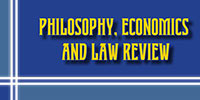Pavlo KRETOV
Candidate of Philosophical Sciences, Associate Professor (Cherkasy Bohdan Khmelnytsky National University), Ukraine
ataraksia@ukr.net
ORCID iD: orcid.org/0000-0003-2593-3731
ResearcherID: D-4067-2016
Olena KRETOVA
Candidate of Pedagogical Sciences, Associate Professor (Cherkasy Bohdan Khmelnytsky National University), Ukraine
ekretova@ukr.net
ORCID iD: orcid.org/0000-0002-3947-4479
ResearcherID T-3096-2018
UDС 165.12
DOI :10.31733/2786-491X-2021-2-7-17
Keywords: anti-correlationism, narrative, performative, speculative realism, narrative ontology
Abstract. The purpose of the study is to elucidate the defining tendencies of anti-correlationism and its narrative strategies as a fundamental basis of speculative realism, and to consider one of its versions, namely, object-oriented ontology in relation to the concept of narrative ontology and the notion of performative as an anthropological marker of discourse from the perspective of understanding the problem of philosophical anthropology. The authors proceed from the paradoxical nature of anti-correlationism guidelines that substantiate nonrelational metaphysics, while postulating the construction of a narrative ontology of reality, which has the characteristics of a performative. For the first time, the anthropological content of defining tendencies of anti-correlationism and its narrative strategies as a fundamental basis of speculative realism and object-oriented ontology are compared with the concept of narrative ontology and the notion of performative as an anthropological marker of discourse. It has been found that the discursive critique of correlationism is internally contradictory, as it appeals to the thinking and consciousness of the subject and the narrative it creates as a picture of the world. Nowadays, the performative functions as a model of language and speech meaning formation that ontologize the reality of human consciousness, experience and thinking.
References
- Agafonova, E. (2006). Narrative ontology as an opportunity for a new conceptualization of being. In M. Uvarov (Ed.), Paradigm: Essays on Philosophy and Theory of Culture, 6 (232-244). SPb: Publishing house of St. Petersburg. un-t. (in Russian).
- Bogost, J. (2012). Alien Phenomenology, or What It’s Like to Be a Thing (Posthumanities). University of Minnesota Press.
- Brassier, R. (2007). Nihil Unbound: Enlightenment and Extinction. London: Palgrave MacMillan.
- Brassier, R. (2011). Concepts and Objects. The Speculative Turn: Continental Materialism and Realism. Melbourne: re.press.
- Bryant, L., Srnicek, N. & Harman, G. (2011). The Speculative Turn: Continental Materialism and Realism. Melbourne: re.press.
- Franklin, J. (2002). Stove’s Discovery of the Worst Argument in the World. Philosophy, 77(4), 615-624. https://doi.org/10.1017/S0031819102000487
- Garman, G. (2018). Object-Oriented Ontology: A New Theory of Everything. Pelican Books.
- Golovashina, O. (2018). Objective ontology? Metaphysics of G. Harman. Bulletin of St. Petersburg State University. Philosophy and conflictology, 34(1), https://doi.org/10.21638/11701/spbu17.2018.101. (in Russian).
- Harman, G. (2012). On substitute causality. A new literary review, 2(114), 75-90. (in Russian).
- Harman, G. (2015). Four-pointed object. Metaphysics of things after Heidegger. Perm: Gile Press. (in Russian).
- Harman, G. (2020). Skirmishes: with friends, enemies, and neutrals. Punctumbooks.
- Harmon, J. (2019). Excessive Materialism and the Metaphysical Basis of an Object-Oriented Ethics. Philosophy Today, 63(1), 101-124, https://www.pdcnet.org/philtoday/content/philtoday_2019_0063_0001_0101_0124.
- Kretov, P. & Kretova, O. (2017). Narrative versus object-oriented ontology: concept of thing and performative model of speech. Bulletin of the Cherkasy Bohdan Khmelnytsky National University. Series philosophy, 1, 118-127, http://philosophy-ejournal.cdu.edu.ua/article/view/2045. (in Russian).
- Kretov, P., & Kretova, O. (2017). Symbolic landscape of consciousness: man between representationalism, functionalism and relativism. Anthropological Measurements of Philosophical Research, 12, 40-49, https://doi.org/10.15802/ampr.v0i12.119122. (in Ukrainian).
- Longo, F., Padovano, A., & Umbrello, S. (2020). Value-Oriented and Ethical Technology Engineering in Industry 5.0: A Human-Centric Perspective for the Design of the Factory of the Future. MDPI, https://www.mdpi.com/2076-3417/10/12/4182.
- Meillassoux, Q. (2013). Time Without Becoming: Presentation at Middlesex University at the Center for the Study of Contemporary European Philosophy Seminar, hosted by Peter Hallward and Ray Brassier, May 8, 2008. Hefter. (Gefter), https://www.ncca.ru/app/mediatech/file/Quentin_Meillassoux.pdf. (in Russian).
- Meretoja, H. (2014). Narrative and Human Existence: Ontology, Epistemology, and Ethics. New Literary History, 45(1), 89-109.
- Moriceau, J.-L. (2017). Object Oriented Ontology’s Performativity Paradox: writing from a zeroperson perspective. CCSD 2017: The 10‘h Critical Management Studies Conference. ‟Time for another revolution?”. Liverpool, United Kingdom, https://hal.archives-ouvertes.fr/hal-01570967.
- Morton, T. (2011). Here Comes Everything: The Promise of Object-Oriented Ontology. Qui parle spring/ summer, 19(2), 163-190, https://www.academia.edu/934518/Here_Comes_ Everything_The_ Promise_of_Object_Oriented_Ontology.
- Morton, T. (2013). Hyperobjects: Philosophy and Ecology after the End of the World. Minneapolis: University of Minnesota Press.
- Rudnev, V. (2016). New model of reality. Moscow: HSE. (in Russian).
- Sellars, W. (1991). Philosophy and the Scientific Image of Man. In Sellars W. (Ed.), Science, Perception and Reality. Atascadero, CA: Ridgeview Publishing Company, 1-40.
- Sloterdijk, Р., & Turner, С. (2018). What Happened in the Twentieth Century? : Towards a Critique of Extremist Reason. Polity Press.
- Starovoit, V. (2018). “Trans-noumenalism” and object-oriented ontology: Real, imaginary and the constitution of objectivity within speculative realism. Bulletin of V. Karazin Kharkiv National University. Series: ‟Philosophy. Philosophical Peripetia”, 58, 46-58. (in Ukrainian).
- Zahurska, N. (2017). Speculative reality of the post-Anthropocene. ‟Bulletin of V. Karazin Kharkiv National University. Series: ‟Philosophy. Philosophical Peripetia”, 57, 4-8. (in Russian).
